

Introduction
The Fujifilm XF 8mm F3.5 R WR is the widest-angle prime lens in Fujifilm’s extensive XF range, which is suited to APS-C cameras like the X-T5, X-H2 and X-Pro3.
The rectilinear design Fuji 8-16mm F2.8 lens provides an angle-of-view of over 120 degrees that is similar to that of a 12mm optic in a 35mm full-frame system.
The main highlights include a constant F3.5 maximum aperture and an optical formula comprised of 12 elements in 9 groups ,including 3 aspherical and 2 ED elements.
It has a close-focus point of 18cm and maximum magnification of 0.07x, an iris diaphragm with nine rounded blades, fast and quiet auto-focusing, 62mm filter thread and weather-proof construction.
The Fujifilm XF 8mm F3.5 R WR lens is available now priced at £799.99 / $799.95 in the UK and the US, respectively. The XF 8mm F3.5 is manufactured in the Philippines.
Ease of Use
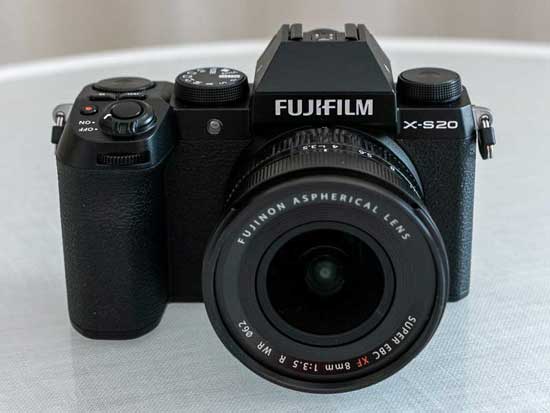
The XF 8mm F3.5 c with a perfectly reasonable 62mm filter size
The new XF 8mm is much smaller and lighter than the other comparably wide 8mm XF lens, the 8-16mm F2.8 R LM WR, which weighs in at 805g and measures just over 12cms in length.
Compared to the Fujifilm XF 10-24mm F4 lens, which measures 77.6mm x 87mm and weighs in at 385g, there’s still a substantial size and weight difference between the two.
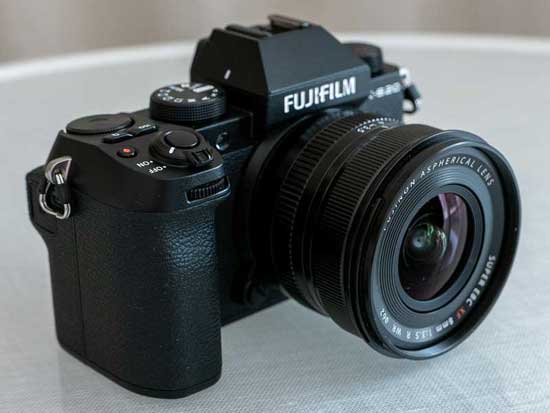
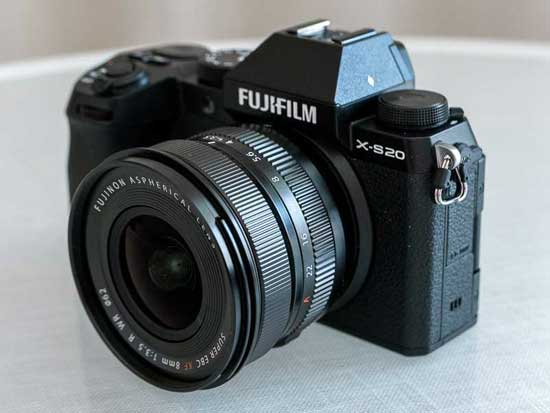
The newcomer to the Fuji lens range is more than compact and light enough to feel very well-balanced on the equally new X-S20 camera that we tested it with, which is one of the smallest X-series bodies currently available.
Weather-resistance has been built-in to the 8mm F3.5 lens to help protect it against water and dust and allow it to fully operate in temperatures down to -10°C (14°F).
In testing it complemented the new Fujifilm X-S20 camera very well, forming a well-balanced and lightweight package and more than matching the body in terms of its build quality.
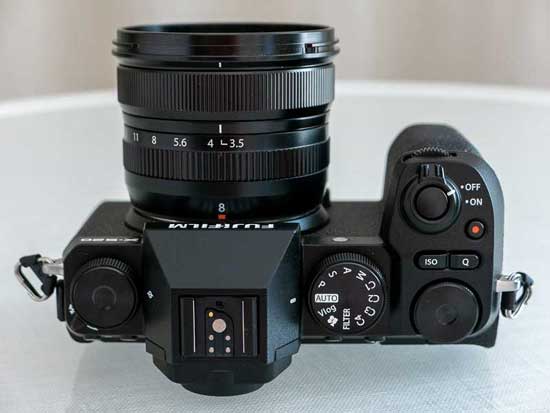
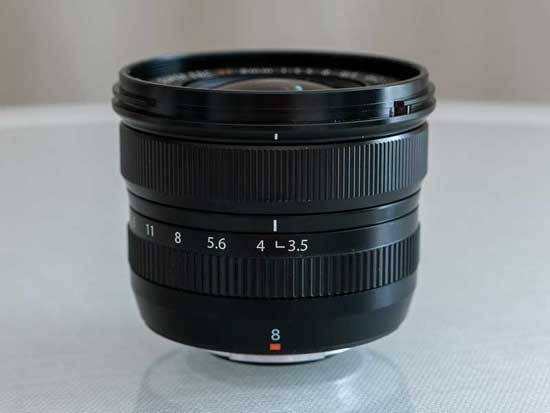
The Fujifilm 8mm lens boasts a metal mount and focusing and aperture rings, metal lens barrel and non-rotating 62mm filter thread. The Fujifilm XF 8-16mm F2.8 R LM WR doesn’t accept screw-in filters because of its protruding front element and built-in lens hood.
As with most Fuji lenses, the XF 8mm F3.5 R WR lens has a traditional aperture ring on the lens barrel, which allows you to set the aperture in 1/3 steps, complete with full aperture markings running from f/3.5 to f/22.
The aperture is also shown in the camera’s viewfinder or on the LCD screen as you turn the ring.
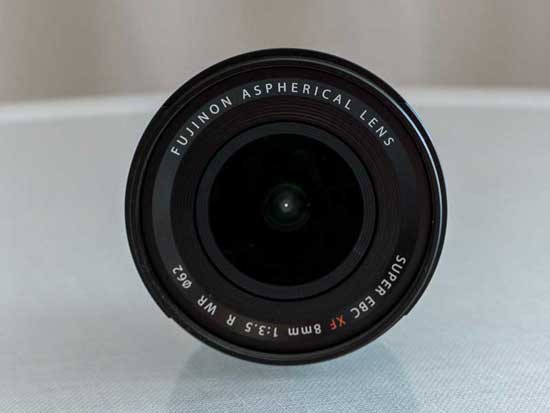
The aperture ring is nicely damped and makes a distinctive click as you change the setting, and it’s stiff enough to prevent it from being accidentally turned when stored in a camera bag.
It toggles between auto aperture control (the ring is set to A) or manual aperture control (the switch is set to one of the aperture values).
Fujifilm have also included an A (Auto) Position Lock button. When the aperture ring is set to the A position, it’s automatically locked into place until you hold down the A (Auto) Position Lock button and turn the ring to select one of the aperture values.
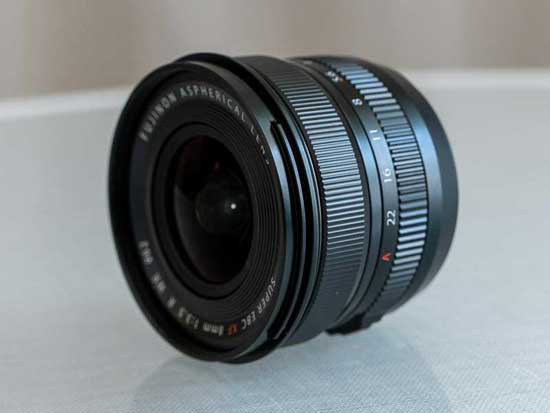
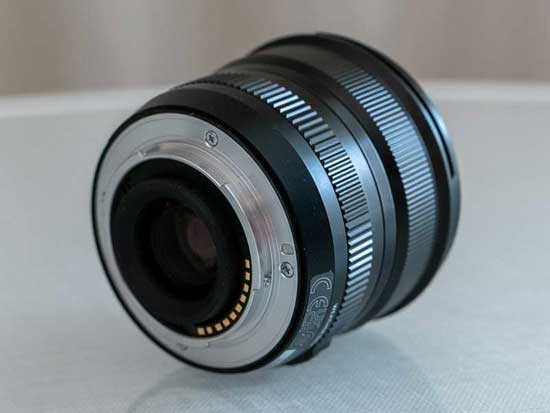
The focus ring is smooth in action without being loose, although it has no “hard stops” at either end of the focus range, making it more difficult to focus on infinity.
The Fujifilm XF 8mm F3.5 R WR lens has an internal focusing (IF) system that uses a linear motor, which results in fast, accurate, and virtually silent auto-focusing on the X-S20 camera that we tested it with.
Thanks to the IF mechanism the front of the lens does not rotate on focus, which is very good news for anyone looking to use the lens in conjunction with a polariser or graduated neutral density filter.
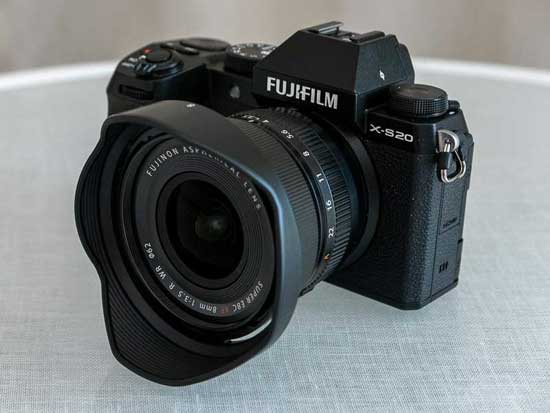
The Fuji 8mm F3.5 has a smooth manual focusing ring that is focus-by-wire, rather than using a mechanical clutch-based focus ring, but that’s also true of every other Fuji X-series lens.
In terms of accessories, the Fujifilm XF 8mm F3.5 R WR ships with standard lens and mount caps plus quite a plastic petal-shaped lens hood which rotates and then snaps into place. There is no bag or case included with this lens.
Focal Range
The 8mm focal length provides an angle of view of 121 degrees.

Chromatic Aberrations
Chromatic aberrations, typically seen as purple or blue fringes along contrasty edges, are not too much a problem with the Fujifilm XF 8mm F3.5 R WR lens, except in areas of very high contrast.
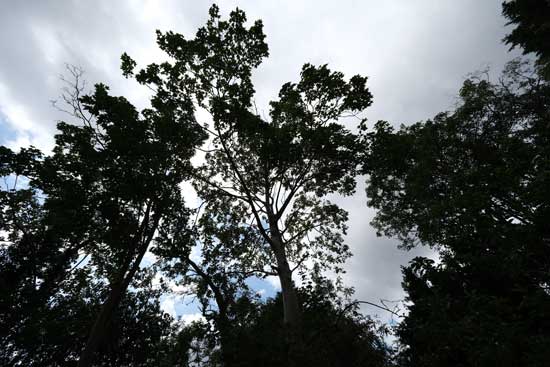
Vignetting
With the lens set to its maximum aperture of f/3.5, there is some light fall-off in the corners, requiring you to stop down by at least 2 f-stops to completely prevent it.
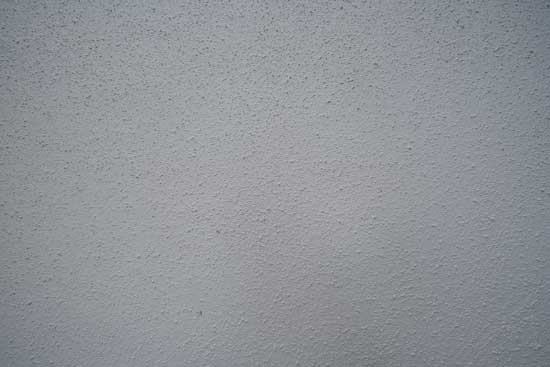
Distortion
The Fujifilm XF 8-16mm F2.8 R LM WR exhibits only a small amount of barrel distortion in the auto-corrected JPEG, as you can see in the photo below, but the uncorrected RAW files displays much more. although that isn’t at all unusual for such a wide-angle lens.

JPEG

RAW
Sunstars and Flare
The Fujifilm XF 8mm F3.5 R WR is capable of producing quite nice sunstars when stopped-down to f/16 and flare is well controlled even when shooting straight into the sun, as you can see in the following photos.


Macro
The Fujifilm XF 8mm F3.5 R WR is not really a macro lens, but it does offer a usefully close focus point of 18cm / 7.09in from the sensor plane and a maximum magnification of 0.07x.
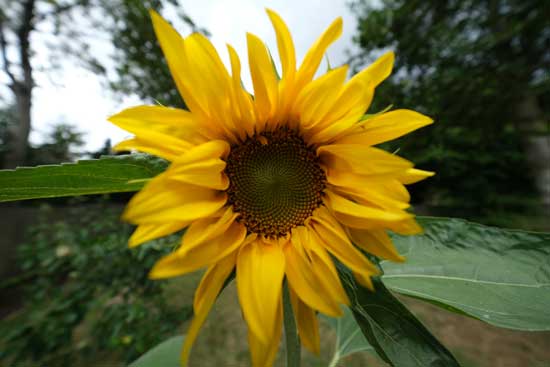

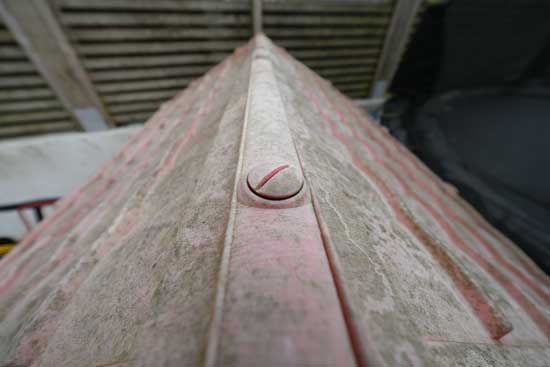

Bokeh
Bokeh is a word used for the out-of-focus areas of a photograph, and is usually described in qualitative terms, such as smooth / creamy / harsh etc.
Fujifilm have paid close attention to this aspect of lens use, employing a 9-segment diaphragm with rounded blades for more pleasing bokeh.
In our view, their efforts have been successful for such a wide-angle prime lens – see the examples below to judge for yourself.




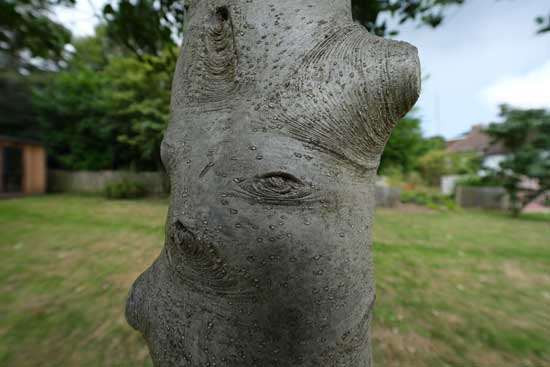
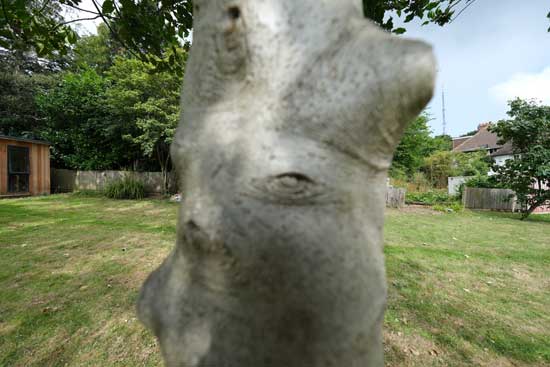
Sharpness
In order to show you how sharp the Fujifilm XF 8mm F3.5 R WR lens is, we are providing 100% crops on the following page.





